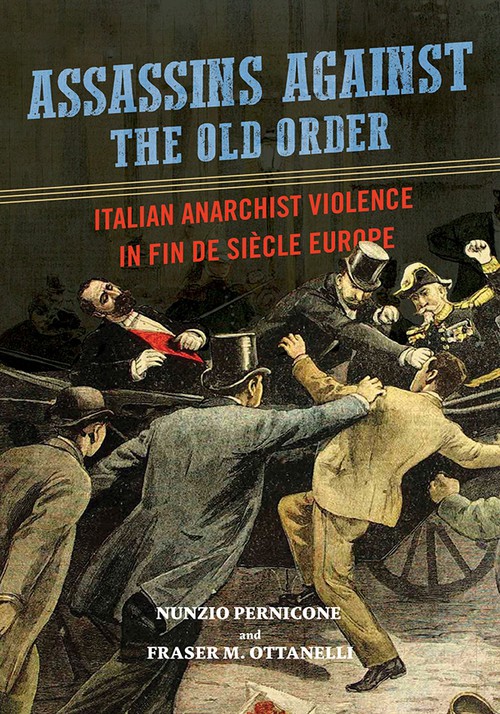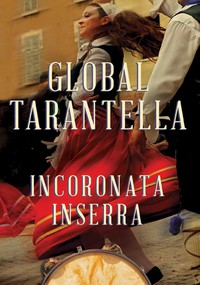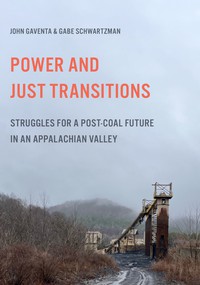
Assassins against the Old Order
Cloth: 09/03/2018
About the Book
The image of the anarchist assassin haunted the corridors of power and the popular imagination in the late nineteenth century. Fear spawned a gross but persistent stereotype: a swarthy "Italian" armed with a bloody knife or revolver and bred to violence by a combination of radical politics, madness, innate criminality, and poor genes. That Italian anarchists targeted--and even killed--high-profile figures added to their exaggerated, demonic image.Nunzio Pernicone and Fraser M. Ottanelli dig into the transnational experiences and the historical, social, cultural, and political conditions behind the phenomenon of anarchist violence in Italy. Looking at political assassinations in the 1890s, they illuminate the public effort to equate anarchy's goals with violent overthrow. Throughout, Pernicone and Ottanelli combine a cutting-edge synthesis of the intellectual origins, milieu, and nature of Italian anarchist violence with vivid portraits of its major players and their still-misunderstood movement.
A bold challenge to conventional thinking, Assassins against the Old Order demolishes a century of myths surrounding anarchist violence and its practitioners.
About the Author
Nunzio Pernicone was professor emeritus in the Department of History and Politics at Drexel University. He is the author of Italian Anarchism, 1864-1892 and Carlo Tresca: Portrait of a Rebel. He died in 2013. Fraser M. Ottanelli is a professor of history at the University of South Florida. His books include The Communist Party of the United States from the Depression to World War II and he is also coeditor of Letters from the Spanish Civil War: A U.S. Volunteer Writes Home.Reviews
"Pernicone's posthumously published work will open many eyes about Italian anarchist and their attentats (actions). Readers who want a clear understanding of Italian anarchism and anarchists will be well repaid by reading Assassins against the Old Order. Highly Recommended." --Choice"An excellent new study." --History News Network
"The definitive study of nineteenth-century anarchist violence." --H-Net Reviews
"Pernicone and Ottanelli have clearly opened new ground, and their original, commendable book will be a necessary reference for students on fin de siècle Anarchism and Italian social history." --Journal of Modern Italian Studies
"Assassins Against the Old Order is a significant historical study and a tribute to an eminent scholar." --Ovunque Siamo
"Such an excellent work." --American Historical Review
"Pernicone and Ottanelli create well-rounded portraits of the anarchist assassins as well as a powerful fresco of the socio-political context in which they operated. By the end of this volume, we readers have learned enough of the giustiziere to identify him as he walks shoulder to shoulder with the workers who crowd Pelizza da Volpedo’s Quarto stat." --Annali d'Italianistica
Blurbs
"An outstanding book that deftly moves from an analysis of economic, political, and social conditions to the human scale through intimate descriptions of the values, lives, and actions of the most famous anarchist assassins. In explaining anarchist violence, it shows that the assassins aimed at killing symbols of state power and not persons."--Spencer Di Scala, author of Europe's Long Century: Politics, Society, Culture, 1900-2000
"This is history at its best-meticulously researched, filled with insightful details, and highly provocative. Pernicone and Ottanelli's book effectively explodes prevailing assumptions about fin-de-siècle Italian anarchists, showing that far from the 'born criminals' and degenerate madmen depicted in the yellow press they were a varied group of quite ordinary members of the working class who resist easy generalizations. Coming out at a time of unprecedented misinformation, misinterpretation and anti-intellectualism, Assassins against the Old Order also powerfully reminds us that anarchist violence cannot be conflated with contemporary definitions of "terrorism" and that human behavior cannot be understood apart from the distinctive historical conditions and personal motivations of its actors. A must read for anyone interested in anarchism and, more broadly, the turbulent political history of late-nineteenth century Europe."--Marcella Bencivenni, author of Italian Immigrant Radical Culture: The Idealism of the 'Sovversivi' in the United States, 1890-1940








